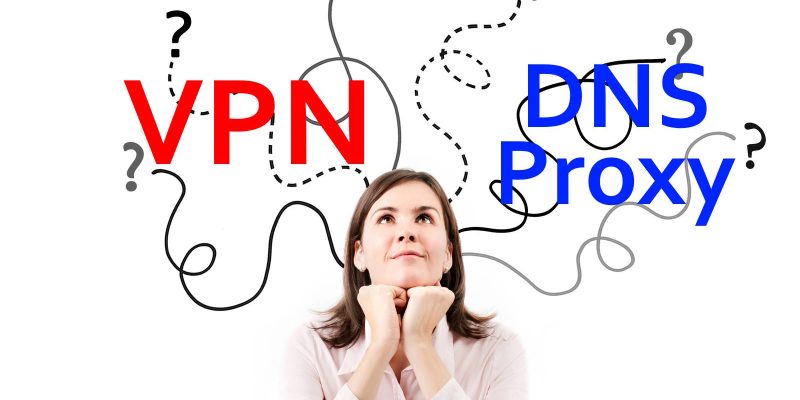The Ultimate Guide to VPN Protocol: OpenVPN, IKEv2/IPsec, WireGuard, SSTP, L2TP/IPSec, and PPTP
In today’s digital landscape, where online privacy and security (or even bypassing geo-restrictions) are paramount, Virtual Private Networks (VPNs) have become an essential tool for individuals and businesses alike. However, with a plethora of VPN protocols available, it can be overwhelming to determine the most suitable one for your needs. This VPN guide aims to shed light on the various VPN protocols, their advantages, disadvantages, and performance, helping you make an informed decision. From the widely-used OpenVPN to the emerging WireGuard, as well as the secure and reliable IKEv2/IPsec, SSTP, L2TP/IPSec, and the legacy PPTP, we will delve into each protocol, exploring their features and limitations. Whether you are a VPN novice or an experienced user, this guide will equip you with the knowledge to select the most suitable VPN protocol that guarantees your privacy, security, and performance. VPN Protocols: An Overview In the world of virtual private networks (VPNs),…
VPN vs. DNS Proxy (Smart DNS): What are the Differences?
You need to know the major differences between VPN vs. DNS Proxy(smart DNS) so that you can choose the right service to meet your needs. When you search for the comparison of VPN vs. DNS Proxy (smart DNS), you may find most articles are over-simplified or outdated. This post tries to explain the differences between VPN vs. DNS Proxy (smart DNS) in depth from the following 7 distinct perspectives: location spoofing, traffic encryption, speed, security, cost, ease of use, and additional features. Why and when do you need to use VPN or DNS proxy (smart DNS)? In today’s digital age, it’s essential to protect your online privacy and access geo-restricted content. Two popular technologies used for this purpose are Smart DNS and VPN. While both Smart DNS and VPN can help you bypass geo-restrictions and protect your online privacy, they work in different ways. What is Smart DNS? DNS proxy,…
Continue Reading VPN vs. DNS Proxy (Smart DNS): What are the Differences?
Geo-Restriction: A Definite Guide
Geo-restriction is not new for most of us. When you travel, you will notice your Netflix account can access different contents from those at home. There are some ways to bypass the geo-restriction. For example, you can use a web proxy, a VPN, or smart DNS to spoof your location and, therefore, bypass the geo-restriction easily. This post explains everything you need to know about geo-restriction, including the history and intention of the geo-restriction, how it is implemented and enforced, how to bypass geo-restriction, and legal issues related to bypassing geo-restrictions. What is geo-restriction on the Internet? Geo-restriction refers to the practice of limiting access to online content based on the user’s geographic location. This is typically done to comply with copyright laws, licensing agreements, and other legal requirements. Geo-restriction can prevent users from accessing websites, streaming services, and other online content from outside a specific geographic region or limit…
Web Proxy Explained
Web proxy is an essential component of modern network technology. It is a critical tool for anyone looking to increase their online security, improve browsing speed, and protect their privacy. In this post, we’ll take a closer look at web proxies and explore their benefits, types, how to set them up, some common issues that can arise when using them, and the differences between them and VPNs. Why may you need the web proxy? The Internet has become an essential part of our lives, and with this comes an increasing need for security and privacy. Hackers, governments, and advertisers are all seeking to gain access to our online activity, making it essential to protect ourselves. A web proxy is an excellent tool that helps protect your online identity while allowing you to browse the web securely and anonymously. A web proxy works by acting as an intermediary between your computer…
How does DNS proxy (smart DNS) unblock video streaming services?
You can use DNS proxy (aka smart DNS) to bypass the geolocation restrictions of video streaming. Compared to VPN, a DNS proxy is always faster. This DNS proxy guide explains how DNS proxy works and the limitations of the DNS proxy. Why do you need a DNS proxy? As explained in this guide, a VPN proxy can help you bypass geolocation-based restrictions. Therefore many VPN users use VPN to unblock video streaming. For example, you can enjoy Hulu or Netflix when you travel abroad. But there is one problem with VPN for video streaming. VPN will always slow down your internet connection speed. In some cases, you may not be able to enjoy smooth video streaming. The problem can happen to all VPN providers: good, bad, or in-between. So, what’s the solution? Currently, DNS proxy (some providers call it smart DNS proxy) is the only solution. You can get almost the…
Continue Reading How does DNS proxy (smart DNS) unblock video streaming services?
Why and when should you use VPN to surf the web anonymously without restrictions?
You may not know your internet service provider (ISP), and some website owners may sell (in one way or another) your web browsing data to third parties. You can use VPN (a virtual private network) to hide your web activities from your ISP and other data-harvesting companies. You can also use VPN to bypass censorship and geolocation-based restriction on web services (e.g., video streaming). This safe surfing guide explains why and when you need to use VPN to surf the web anonymously without restrictions. Who can see your browsing data (and other internet activity data)? Whenever you open a website in the browser, many parties can see and monitor what you are doing. For example, your ISP can see Which website are you browsing? How long do you spend on each webpage? The data you submitted to the website (e.g., the form you submitted, the files you uploaded). The data…
Continue Reading Why and when should you use VPN to surf the web anonymously without restrictions?





